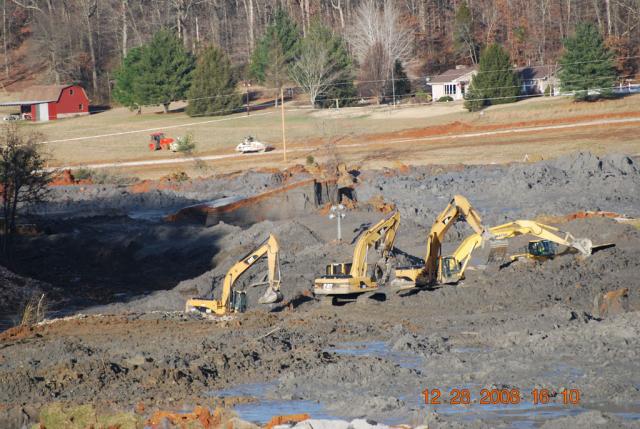September is back to school month, but the next big test for the White House and EPA has already begun. How the Obama administration handles the proposed regulation of coal ash – the toxic waste left over from coal-burning power plants loaded with mercury, lead, and arsenic – will serve as a key indicator of the administration’s sincerity in responding to one of the worst energy and environmental crises threatening the health and water supplies of millions of Americans.
Two key states, Tennessee and Alabama, have been shut out of the discussion on how best to regulate coal ash, thanks to EPA’s bewildering decision not to hold public hearings in either state. Residents of Tennessee might have a few things to say about the impacts of coal ash, since the state suffered the worst coal ash disaster in U.S. history less than two years ago.
The failure of the Tennessee Valley Authority’s massive coal slurry containment pond near its Kingston coal plant gushed more than 1 billion gallons of toxic coal ash into nearby streams, destroyed three homes and continues to endanger the water supplies and health of nearby residents.
Meanwhile, a rural town in Perry County, Alabama is receiving the toxic leftovers from the spill by the train full. Uniontown, Alabama is host to the bankrupt Arrowhead landfill where the coal ash “spilled” into the Emory River is being buried. Thirty percent of residents in Perry County – which is majority African American – live below the poverty line, another prime example of environmental injustice in the South.
Why the EPA would gloss over Tennessee’s and Alabama’s input on coal ash by neglecting to hold hearings there is anyone’s guess. The nearest public hearing is in Charlotte, North Carolina, a 260-mile drive away for the Tennessee victims of the TVA disaster. Uniontown residents would have to drive nearly 500 miles, an 8-hour trip, to have their say in Charlotte.
In contrast, residents of Denver, Colorado will enjoy a hearing in their home town, even though there isn’t a single coal ash damage case in the state of Colorado, according to the “In Harm’s Way” report released last week by the Environmental Integrity Project, Sierra Club and Earthjustice.
Here is a little visual reminder for the EPA about what Tennessee residents experienced in the wake of the TVA disaster:
Subscribe to our newsletter
Stay up to date with DeSmog news and alerts






